|
Red Knots and
Shorebird Surveys - North Point, James Bay |
|
Page 1 of 8 |
|
16 July to 14 August 2011 |
|
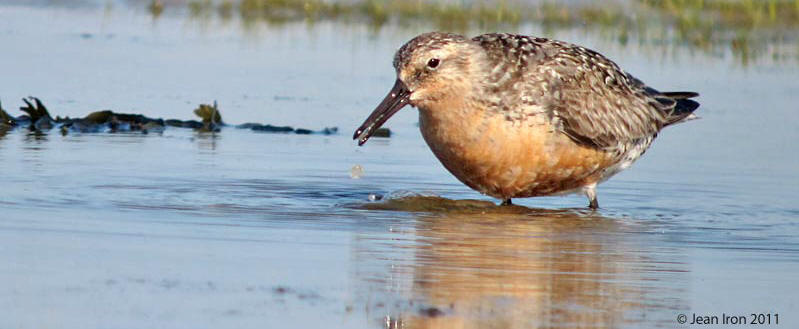 |
|
Endangered rufa
subspecies of the Red Knot fattening on the extensive mudflats at
North Point in southern James Bay, Ontario. After
feeding and undergoing a body molt for up to about 21 days, Red
Knots leave James Bay for wintering areas in South America. Photo: 4
August 2011. |
|
|
|
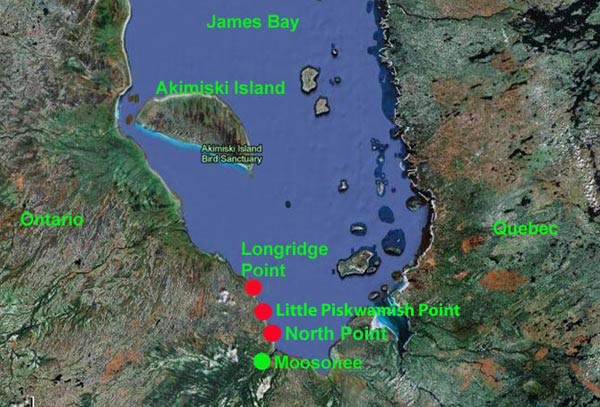 |
In 2011 we operated
three camps in southern James Bay: North Point is 25 km north of
Moosonee, Little Piskwamish Point is about midway between North
Point and Longridge Point, which is 60 km north of Moosonee. |
|
|
I thank Mark Peck of
the Royal Ontario Museum (ROM) for inviting me to join the
survey team. Other members were Barb Charlton, Antonio Coral,
Kevin Hannah, Roy John, Mike McMurtry, Doug McRae, Mark Peck,
Ron Ridout, Emily Rondel, Don Sutherland, Minnie Sutherland, and
Aus Taverner. Special thanks to Ken Abraham, Rod Brook and Sarah
Hagey of the Ontario Ministry of Natural Resources (OMNR) and
Christian Friis of the Canadian Wildlife Service (CWS) for their
support.
The Royal Ontario Museum study
of Red Knots and shorebirds is a cooperative project with the
Ontario Ministry of Natural Resources, Canadian Wildlife Service,
Natural Heritage
Information Centre of the Ontario Ministry of Natural Resources
(NHIC),
and the Moose Cree First Nation
(MCFN). |
|
|
|
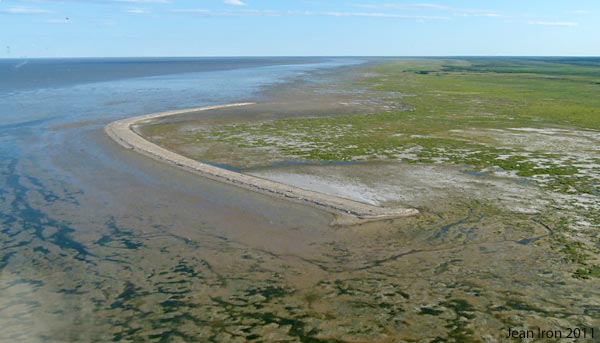 |
|
Gravel bar near
North Point on 14 August 2011. The wide tidal mudflats
and coastal marshes of southern James Bay are of international
importance to an estimated over 2 million migrating shorebirds. |
|
|
|
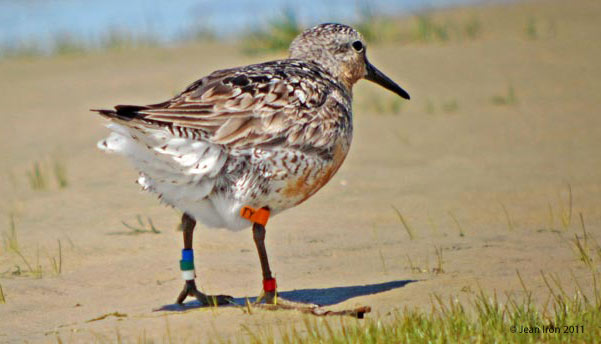 |
|
Celebrity Red Knot
TY with an orange flag, which was put on in Argentina in March
2006. TY was first sighted at North Point on 26 and 29 July 2011. It flew to Longridge
Point where it was last seen on 11 August 2011. In 2010 TY stayed for 18 days
at Longridge, making it our longest staying knot. Photo
on 26 July 2011.at North Point by Jean Iron. |
|
|
|
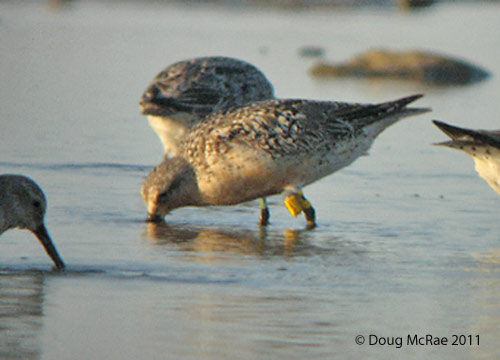 |
|
The yellow pack on this
Red Knot's left leg is a datalogger for recording daylight hours.
If this knot is recaptured, researchers can track its migration
routes. The datalogger was put on in the
USA. Photo by Doug McRae at Little Piskwamish Point on 3 August
2011. |
|
Now go to Page 2 -
Shorebird Flocks |
|
|
|
|